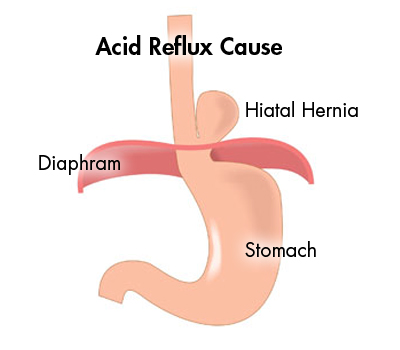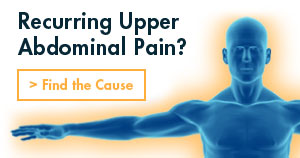Acid reflux—specifically known as gastroesophageal reflux—is the backflow of stomach acid into the esophagus. Symptoms of acid reflux include heartburn and the taste of regurgitated food or sour liquid at the back of the mouth. A severe or chronic case of acid reflux may be a condition called gastroesophageal reflux disease—or GERD—of which heartburn is the most common symptom.
GERD occurs when the lower esophageal sphincter muscle either relaxes inappropriately or is very weak, allowing acid from the stomach to reflux into the esophagus causing heartburn and other symptoms. This can also be known as a hiatal hernia or esophageal hernia. When acid reflux and heartburn occur at least twice a week, or interfere with daily life, or when damage to the esophagus is seen, GERD is most likely the culprit.
Occasional acid reflux can generally be treated with over-the-counter medication and lifestyle changes such as: weight loss; eating smaller meals; avoiding trigger foods like fried and fatty foods, chocolate, and peppermint; and avoiding alcohol and nicotine. GERD may be treated with prescription medications and in some cases, minimally invasive surgery.
Recently on Good Morning Texas, Dr. Nick Nicholson discusses reflux.
August 31, 2016
Learn more about acid reflux and GERD causes, symptoms, and diagnosis by selecting from the options below. Or schedule your appointment today and talk to an expert.



 Causes & Symptoms
Causes & Symptoms

